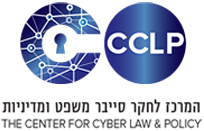PI: Dr. Moran Yemini.
Abstract:
In his The Irony of Free Speech, published in 1996, Professor Owen Fiss argues that the traditional understanding of freedom of speech, as a shield from interference by the state, ended up fostering a system that benefited a small number of media corporations and other private actors, while silencing the many who did not possess any comparable expressive capacity. Conventional wisdom says that by dramatically lowering the access barriers to speech, the Internet has provided a solution to the twentieth-century problem of expressive inequality identified by Fiss and others. As this Article will demonstrate, however, the digital age presents a new irony of free speech, whereby the very system of free expression that provides more expressive capacity to individuals than ever before also systematically diminishes their liberty to speak. The popular view of the Internet as the ultimate promoter of freedom of expression is, therefore, too simplistic. In reality, the Internet, in its current state, strengthens one aspect of freedom (the capacity aspect) while weakening another (the liberty aspect), trading liberty for capacity.
This Article will explore the process through which expressive capacity has become a definitive element of freedom in the digital ecosystem, at the expense ... Read More in the PDF FIle.
© 2018 THE CENTER FOR CYBER LAW & POLICY. All rights reserved.





